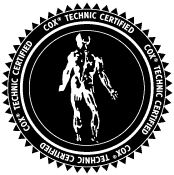Groton Back Pain Relief Includes Self-Management
“Just give me something to stop the pain.” or “Just do something so I stop hurting.” are just two comments Shoreline Medical Services/ Hutter Chiropractic Office and fellow back pain healthcare practitioners hear frequently. When in pain, we all just want it to stop in the least effort required and quickest way possible. This is not always possible though. We all need to look at our pain and make friends with it to some extent. We have to see it for what it is. Temporary. Unwelcome. Disruptive. But manageable many times when engaged. Shoreline Medical Services/ Hutter Chiropractic Office urges our Groton back pain patients and neck pain patients to take part in their back pain relief process. It can make a difference. It may well alter your life for the better. Many Groton chiropractic patients have lived this.
SELF-MANAGEMENT BENEFITS
Remarkably up to 25% of back pain patients in a new study weren’t actively involved in their spine care treatment plan. Research is filled with reports highlighting the significance of patient-involvement in treatment of spine pain. What kept such patients involved? In researcher-ease, environmental context and resources, emotion, memory/attention/decision-making, and behavioural regulation did. Knowing that these things were the interfering offending factors that interfered with patients’ participation in their own care, researchers created a special plan to address these issues and increase the patients’ understanding and participation via text reminders, exercises, lifestyle changes, webinars, videos, paper educational materials and more. (1) One study found that a variety of approaches to reduce disability and work absenteeism was cost effective though no one certain intervention stood out over others. (2) Like these researchers, Shoreline Medical Services/ Hutter Chiropractic Office tries to do anything possible to help our Groton back pain and neck pain patients!
SPINE EXERCISES AND EMS
This may be a unique helpful intervention for certain patients: whole-body electromyostimulation. It dropped nonspecific chronic low back pain equally as well as back-strengthening exercise protocols. When fear of movement and functional limitations because of back pain are a part of the problem, whole body electrical stimulation improved patients’ strength and stabilization in a timely fashion, reducing pain intensity and enhancing trunk flexors. (3) Shoreline Medical Services/ Hutter Chiropractic Office shares such alternatives to help our patients.
SELF-MANAGEMENT APP
Have you heard “There is an app for that!”? Shoreline Medical Services/ Hutter Chiropractic Office is sure you have! Not alarming in today’s app-crazy world that there is an app in the works to help you keep track of self-management tasks like exercise, sleep, etc. For the “selfBACK” app, researchers are now collecting data on the usefulness of various interventions at baseline, 6 weeks, 3, 6, and 9 months for nonspecific low back pain. From this research data, researchers plan to fill the app with tips and exercises that have benefited others experiencing similar issues. Each patient’s app will then be tailored for self-management of back pain and other musculoskeletal issues based on what others with similar conditions reported helpful and relieving. (4) Shoreline Medical Services/ Hutter Chiropractic Office looks forward to saying “There's an app for that!" Shoreline Medical Services/ Hutter Chiropractic Office knows that some of our Groton back pain patients will love this!
CONTACT Shoreline Medical Services/ Hutter Chiropractic Office
Listen to this PODCAST with Dr. Jack Stern on The Back Doctors Podcast with Dr. Michael Johnson as he outlines how back pain patients may help themselves to optimal back pain relief.
Schedule a Groton chiropractic appointment soon to begin care with The Cox® Technic System of Spinal Pain Management at Shoreline Medical Services/ Hutter Chiropractic Office. Be ready to be engaged with your back pain treatment plan for back pain relief. You will be so happy that the pill or “something” wasn’t presented to you once you are feeling better regarding back pain relief and mental contentment that you were an active part of the relief process.


